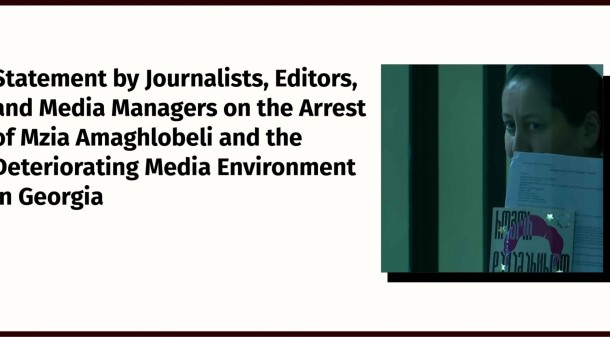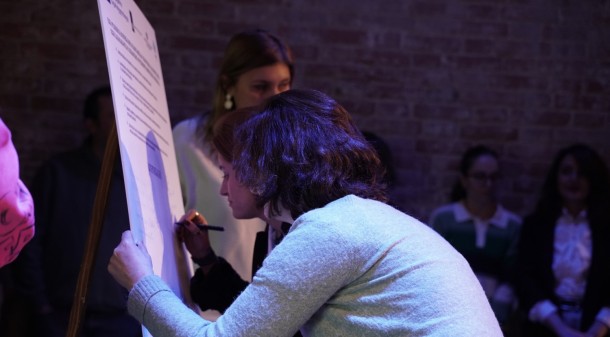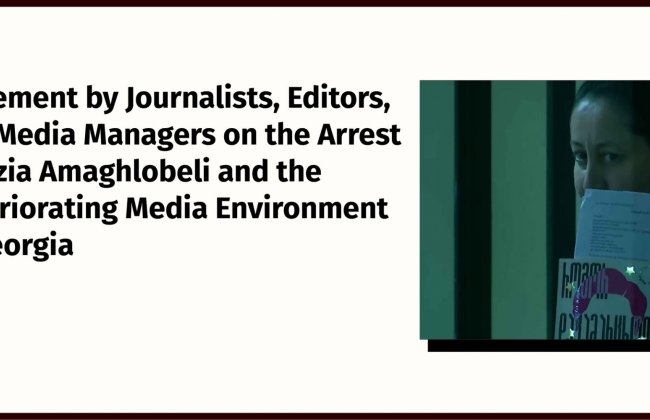19.06.2019
Category : Statements;
It should be noted that hate speech is not regulated only by self-regulation in Georgia. In the cases of hostility incitement, war propaganda or threats to overthrow the government, there are legal mechanisms in current legislation to deal with the issues (against broadcasters as well) in particular, Articles 317 and 239 of the Criminal Code.
By its decision of November 10, 2009, the Constitutional Court did not consider as violation the fact that decisions of self-regulatory authority of the broadcaster were not appealed in the court. The Constitutional Court emphasized threats to freedom of expression, when court or other authority intervenes in the protection of the Broadcasters’ Code of Conduct defined by the Law and in its decision of November 10, 2010 stated: "Freedom of expression is the right guaranteed by the legislation of Georgia, but for the full-fledged exercise of this right only legislative guarantees are not sufficient, the society itself should be tolerant of the individuals’ right to express their opinions freely and fearlessly. In a democratic society, people have the obligation to tolerate the opinions that they do not share or even consider immoral. It is impermissible to impose moral norms or worldview of a particular individual or a group of individuals on other groups of the society through state institutions, including through the court. Non-acceptance of broadcaster's position, values and ideas cannot be the basis for restricting freedom of expression. The state is obliged to follow objectively identifiable interests, but not subjective feelings.”[1]
The efforts of the Commission to reduce hate speech, incitement of hostility or broadcasting products that would have harmful effect on juvenile, are justified, however, the draft law suggests the wrong way to solve the problem. The Directive provides member states with the opportunity to decide whether the issue should be resolved through regulation or self-regulation.
Media Advocacy Coalition believes that it is necessary to strengthen self-regulatory mechanism in the broadcasters themselves rather than introducing new regulations. The strengthening of this mechanism and the improvement of its efficiency should be the responsibility of the Georgian National Communications Commission and this is the way to meet the requirements of the EU Directive.
The Coalition considers it unacceptable to adopt legislative amendments related to the freedom of expression in its presented form. Especially, when there are other instruments in the country’s legislation to fight against hate speech and they are not used properly. In addition, according to the practice of the Constitutional Court of Georgia, the Constitution does not require the existence of judicial control over the rules of broadcasting by television and radio.
We believe that any legislative change that will deteriorate current standards of freedom of expression, will threaten the democratic development of the country.
Media Advocacy Coalition calls on the Parliament of Georgia and the Georgian National Communications Commission not to review this draft law on a fast-track basis and to ensure the maximum involvement of all interested parties in the process.
- Georgian Young Lawyers' Association
- Media Club
- Georgian Journalistic Ethics Charter
- Institute for Development of Freedom of Information
- Open Society Foundation
- Alliance of Regional Broadcasters
- Liberal Academy Tbilisi
- Georgian Regional Media Association TV network
- Georgian Small and Medium Telecommunications Operators Association Georgia's
- Democratic initiative







